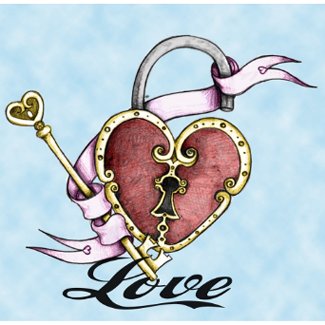Wednesday, January 25, 2012
How does the Theory of Attachment Affect Our Romantic Relationships?
Have you ever wondered about why some people are clingy in relationships? Have you ever wondered why some of your lovers were so distant and seemed unemotional? Why are other people neither too clingy nor too emotionally closed off? Mary Ainsworth's theory of attachment holds the answers to these questions.
Secure Attachment
People are supposed to develop a secure attachment in relationships, because it will make them less aggressive, more empathetic, less disruptive, and more mature. In addition, adults who are securely attached have good self esteem, enjoy intimate and close relationships, can share their feelings and thoughts with others, and seek out social support. Overall, adults with a secure attachment style have long-term, trusting relationships.
Secure Attachment is Linked to Eros Love
Secure Attachment in Children
Ambivalent Attachment
It is not healthy to have an ambivalent attachment style, because you tend to be anxious, worry that your partner does not love you, be reluctant to become close and intimate with others, and be extremely distressed when a relationship ends. Ambivalent attachment in adults may cause romantic relationships to feel cold and distant to them. They worry constantly over whether or not the other person's feelings are true. People who are ambivalently attached can also be clingy and overly dependent.
Ambivalent Attachment is Linked to Mania Love
Ambivalent Attachment in Children
Avoidant Attachment
Being avoidantly attached is also unhealthy, because you cannot have a deep romantic relationship due to the fact that you guard your heart and keep a certain level of emotional distance. People with an avoidant attachment style have difficulty with intimate relationships, use excuses to avoid intimacy and closeness, are not very supportive to their partners, and do not feel distraught when a relationship ends. In essence, those who have an avoidant attachment style do not share their emotions, thoughts, or feelings with their partners. Therefore, they cannot reap the benefits of a close and intimate romantic relationship.
Avoidant Attachment is Linked to Ludus Love
Avoidant Attachment in Children
Click Here to find out your Attachment Style
Another Attachment Style Quiz
Disorganized Attachment
After Mary Ainsworth's contributions to the theory of attachment, Mary Main discovered a fourth type of attachment style, dubbed disorganized attachment. People with a disorganized attachment style think that people cannot be trusted, act controlling, have poor social skills, act aggressive, have anxiety, feel sad, have poor self control, and become frustrated easily.
What if I am not securely attached? What if my child doesn't appear to be securely attached?
Fortunately, attachment styles are not permanent. A person who is ambivalently attached can become securely attached. Even a securely attached individual can become avoidantly attached! The initial attachment is determined by the emotional bond (or lack of) made with the primary caregiver as a child. However, as a child becomes older, he begins to attach to other people and through the positive or negative experiences with those people, he is susceptible to change.
Subscribe to:
Post Comments (Atom)




No comments:
Post a Comment